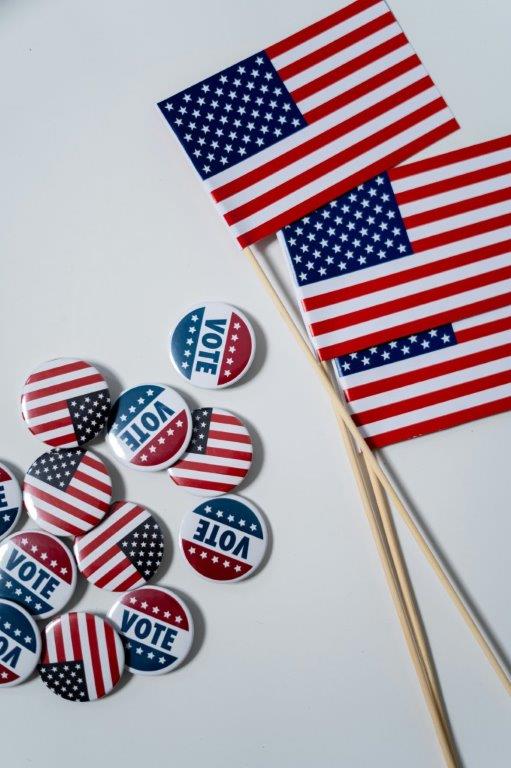Table of Contents

The 2024 presidential race isn’t just about candidates and campaigns; it’s about your voice and future. Your vote in this election will directly influence critical issues that affect your daily life, such as [healthcare reform, climate change policies, and economic recovery plans]. It’s not just a political event; it’s a decision that will shape the policies and laws that impact you and your family daily. The USA Today Network is here to provide you with all the information you need to make informed choices for yourself and your family.
Presidents wield significant power. They can influence social approaches, enact laws, and even initiate or terminate wars. They also have the authority to determine the nation’s level of involvement in global affairs. This election is a critical opportunity for you to decide which political group will best navigate this shift in American politics, thereby shaping our nation’s future. Your vote is not just a right; it’s a powerful tool that can shape our nation’s history.
When is the next US election?
Mark Tuesday, November 5, 2024, on your calendars for the next US election. On this day, citizens of the United States will have the opportunity to cast their votes for various political positions.
The winner of the presidential race will serve a four-year term within the White House, starting with their inauguration on January 20, 2025. It implies that the recently chosen president will formally begin their obligations as the head of state on this date.
Remember, your vote isn’t just a drop in the ocean. It’s a powerful tool that can shape the composition of the United States Congress, including positions in the House of Representatives and the US Senate. These congressional elections are pivotal in deciding the direction of our nation’s policies and laws. The House of Representatives and the US Senate play critical roles in the legislative process, with the House responsible for proposing and passing laws and the Senate for reviewing and approving them. Your vote in these elections can significantly impact the balance of power in our government and the direction of our nation’s laws. Each vote is a voice, and your voice matters.
What is the Electoral College?
The Electoral College is a unique system in the United States. It’s a large group of people who ultimately choose the president of the United States. When people vote in the general election, they’re not directly selecting the president. Instead, they’re choosing electors representing their state within the Electoral College. This system, while complex, is designed to ensure a fair and balanced representation of the states in the presidential election process. Understanding this process is crucial to understanding how your vote contributes to the president’s election.
Each state in the US, along with Washington DC, has a certain number of voters based on the number of individuals living there. Most states have a framework where if a candidate gets the most votes in a state, they get all of that state’s voters. To become president, a candidate ought to win the majority of the 538 balloters within the Constituent College, which is at least 270 electors.
Some people do not like the Electoral College since it only sometimes means the individual who gets the most votes becomes president. For illustration, in 2016, Hillary Clinton got more votes nationwide than Donald Trump, but he won more states and became president. The number of voters for each state can alter over time based on population changes, which is why the Electoral College can be distinctive from one election to another.
What are the latest polls saying?
Recent polls demonstrate that Mr. Trump is ahead of Mr. Biden in several key states, which is stressful for Democrats.
However, despite both candidates effectively winning their party’s designations, they could be more popular overall, with numerous people not favouring them.
Critics of Mr. Biden say he’s too old to run for a moment’s term, mainly since he would be 86 years old after it. Also, there’s controversy encompassing his son’s business dealings.
Mr Trump, who will be 78 years older during the election, is confronting legitimate trouble with 91 criminal charges over four cases, and a few trials are anticipated to happen during the campaign.
Later, essential elections appeared. Mr Trump could have done better based on early surveys. In contrast, Mr Biden confronted backfire from Democrat voters who were unhappy with his handling of the circumstances in Gaza, driving a few to mark “uncommitted” as a challenge.
How did the parties choose their candidates?
At the beginning of the 2024 elections, most political parties chose presidential candidates through primaries or caucuses in each state. In primaries, voters choose delegates for the party convention, where they formally select the ultimate candidate.
Within the states that voted, Mr. Trump effectively won against his primary rivals, including Ron DeSantis, Vivek Ramaswamy, and Nikki Haley. On Super Tuesday, he confronted only one opponent, Ms. Haley, and won all but one state before she finished her campaign the other day. Despite his enormous win, polls suggest that a few moderate Republicans who supported Ms. Haley might not vote for Mr. Trump in the presidential election, making the race for the White House closer.
Meanwhile, Mr. Biden won nearly every race but tied with an outsider named Jason Palmer in American Samoa. However, this region doesn’t vote in the presidential decision. It’s now almost sure that Americans will see a rematch between Mr. Trump and Mr. Biden in November.
Can Trump still run if he’s charged or found guilty?
In reality, yes. According to the Constitution, no rule prevents a citizen born within the nation and over 35 from running for president.
Indeed, if the previous president is indicted and sentenced for any of the 91 criminal charges he’s facing, he’s said he’ll proceed with his campaign.
There’s verifiable proof for this. In 1920, Eugene Debs ran for president as a Socialist Party candidate despite being imprisoned for breaking laws related to secret activities and rebellion. He oversaw his campaign from his jail cell and was permitted to send a political message to the media week after week.
The only thing that may have stopped Mr. Trump was the 14th Amendment, which says anybody included in an insurrection can’t hold office. A few groups attempted to utilize this to evacuate Mr Trump from the decision, but the Incomparable Court rejected their endeavours sometime recently, on Super Tuesday.
However, numerous specialists think a genuine conviction may hurt Mr. Trump’s reputation and chances of winning the race. Indeed, experienced Republicans aren’t sure how it would influence his campaign, as indicting a former president could be a modern circumstance for the nation.

What happens on election day?
The main event on election day is the voting process. Qualified citizens go to their assigned polling places to cast their votes. It is a crucial moment when your voice is heard. Most voters participate in this process on election day itself. However, it’s important to note that many people may have already voted ahead of time using alternative methods such as postal voting or early voting at designated polling locations.
As the polls close in each state, regularly beginning around 7 p.m. local time, the method of tallying the votes starts. This process can vary from state to state, with some using electronic voting machines and others relying on paper ballots. The timing of survey closures also shifts appropriately. For instance, on the East Coast, polls may have already been arranged, whereas voters in states like Gold Country and Hawaii are still in the process of voting due to the distinctive time zones throughout the nation. This complex process underscores the importance of each vote and the need for patience as the results are determined.
When do we know who has won the election?
Finding out who won the election usually happens on election night. If one candidate is a critical vote, it’s frequently clear who won. But sometimes, if the race is exceptionally close or there are many mail-in votes to count, it can take a couple of power transfers to figure out who won. It was the case in the 2020 election, which saw a record number of mail-in votes due to the COVID-19 pandemic. The delay in counting these votes led to a longer wait for the final results. Remembering this as we approach the 2024 election, mail-in voting may again play a significant role in the outcome.
After the election, if a new president is coming in, there’s a transition period before they formally begin. This period, which typically lasts about two months, is a time of preparation and planning. The new president and their group prepare to take over during this time. They assemble a gathering of imperative advisors and leaders called the cabinet, who will play critical roles in the new administration. They also plan what they need to do when they’re in charge, setting their priorities and outlining their policy agenda.
The new president formally begins their job in January during the presidential inauguration. It is a meaningful event at the Capitol building in Washington, DC. It’s a critical moment in American politics, symbolizing the peaceful power transfer from one administration to the next. Many essential and regular people come to observe and celebrate this special event, which is a testament to our democratic values and the strength of our nation. It’s a time of new beginnings and a fresh start for our country.
US Department of Justice Sues Apple, Accusing it of Monopolizing Smartphone Market



